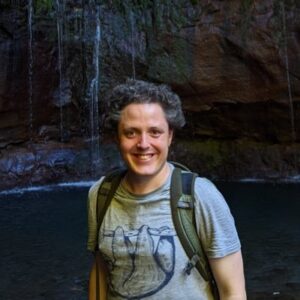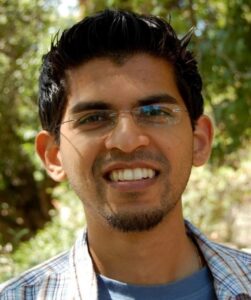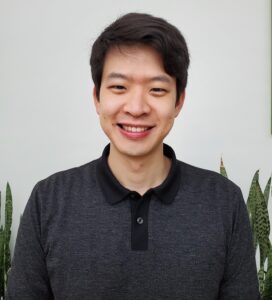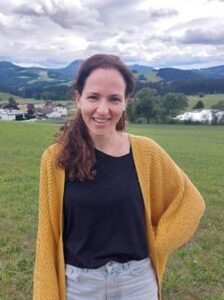 Cell identity drives cell-cell communication and tissue architecture and is in return regulated by cell-extrinsic cues. Cell identity is determined by the combination of intrinsic developmentally established transcription factor use (TF) and constitutive as well as cell communication-dependent TF activities. Presented work shows two probabilistic models that we developed to advance the understanding of these processes using single-cell and spatial genomic data.
Cell identity drives cell-cell communication and tissue architecture and is in return regulated by cell-extrinsic cues. Cell identity is determined by the combination of intrinsic developmentally established transcription factor use (TF) and constitutive as well as cell communication-dependent TF activities. Presented work shows two probabilistic models that we developed to advance the understanding of these processes using single-cell and spatial genomic data.
Spatial transcriptomic technologies promise to resolve cellular wiring diagrams of tissues in health and disease, but comprehensive mapping of cell types in situ remains a challenge. Here we present cell2location, a Bayesian model that can resolve fine-grained cell types in spatial transcriptomic data and create comprehensive cellular maps of diverse tissues. Cell2location accounts for technical sources of variation and borrows statistical strength across locations, thereby enabling the integration of single cell and spatial transcriptomics with higher sensitivity and resolution than existing tools. We assess cell2location in three different tissues and demonstrate improved mapping of fine-grained cell types. In the mouse brain, we discover fine regional astrocyte subtypes across the thalamus and hypothalamus. In the human lymph node, we spatially map a rare pre-germinal center B cell population. In the human gut, we resolve fine immune cell populations in lymphoid follicles. Collectively our results present cell2location as a versatile analysis tool for mapping tissue architectures in a comprehensive manner.
Python package is provided here: https://github.com/BayraktarLab/cell2location.
Cell identity and plasticity is regulated by a combinatorial code mediated by transcription factors and the cell communication environment. Systematically dissecting how the regulatory code robustly defines the vast complexity of cell populations across tissues is a long-standing challenge. Measured using the assay for transposase-accessible chromatin with sequencing (ATAC-seq), DNA accessibility provides a readout of intermediate gene regulation steps at single-cell resolution, with technologies measuring both RNA and ATAC providing the necessary evidence to build mechanistic models of regulation. Existing methods address one or several subproblems of modelling DNA accessibility. For example, the DNA sequence-based deep learning models represent combinatorial interactions and in-vivo TF-DNA recognition preferences. In contrast, GRN models use TF abundance profiles across cells and in-vitro-derived TF-DNA recognition preferences, optionally incorporating ATAC-seq data as a filter. All models learn cell-type specific weights and properties and don’t generalize to new TF abundance states such as new cell types. Therefore, we are missing an end-to-end mechanistic model that represents all steps of the biological process, that generalizes to both new DNA sequences and TF abundance combinations and can simultaneously characterize hundreds to thousands of cell states observed in single-cell genomics atlases. Here, we formulated cell2state, a mechanistic end-to-end probabilistic model of TF recruitment to a chromatin locus and downstream TF effect on DNA accessibility. Cell2state is designed to achieve the generalization of regulatory predictions to unseen cell types. Cell2state A) estimates TF nuclear protein abundance and models B) how TFs recognize DNA, C) how TF sites in DNA lead to TF recruitment to a chromatin locus, D) how the activity of DNA-associated TFs affects chromatin accessibility. To evaluate generalization, we defined the computational problem and developed a workflow for predicting the scATAC-seq readout for previously unseen chromosomes and cell types. We show that cell2state outperforms the state-of-the-art deep learning models (ChromDragoNN) at explaining DNA accessibility differences across cells. Finally, to look at cell state plasticity, we developed ways to use cell2state to simulate the possible chromatin states given TF abundance of source cell types.
Speaker: Vitalii Kleshchevnikov, PhD
Affiliation: Wellcome Sanger Institute
Position: Bioinformatician @ Bayraktar, Stegle, Teichmann group
Host: Daniel MacDonald, Gibson Lab
Date: Monday February 26, 2024
Time: 10:00AM-11:00AM ET
Zoom: https://partners.zoom.us/j/82163676866
Meeting ID: 821 6367 6866
Vitalii Kleshchevnikov is driven by a deep interest in three key areas: i) understanding the regulatory code which allows a single genome to specify the full diversity of cell populations and their interaction, ii) formalizing the biology of these processes into mechanistic AI/ML models, and iii) accelerating the therapy development to address ageing alterations in these processes. Vitalii did his PhD jointly supervised by Dr Omer Bayraktar, Dr Oliver Stegle, Dr Sarah Teichmann at Wellcome Sanger Institute (2018-2023) and will present the published and ongoing work. Prior to PhD, Vitalii worked on the role of peptide motifs (SLiMs) in intracellular signaling (Dr Evangelia Petsalaki, EMBL-EBI), predicting CRISR KO mutational outcomes (Dr Leopold Parts, Wellcome Sanger Institute) and profiling protein interactions in accelerated ageing (A*STAR) – while completing MSc and BSc in Kyiv, Ukraine.
Click here to be added to our mail list.


 BWH Computational Pathology Special Seminar
BWH Computational Pathology Special Seminar Human tissue, which is inherently three-dimensional (3D), is traditionally examined through standard-of-care histopathology as limited two-dimensional (2D) cross sections that can poorly represent the tissue due to sampling bias. To holistically characterize 3D histomorphology, 3D imaging modalities have been developed, but clinical translation is hampered by the complex and time-consuming requirements for manual evaluation, as well as the current lack of computational platforms to distill clinical insights from these large, high-resolution datasets. We present a deep learning model for processing tissue volumes and predicting patient outcomes with weak supervision. Recurrence risk-stratification models were trained with archived prostate cancer specimens imaged with open-top light-sheet microscopy or microcomputed tomography. By comprehensively capturing 3D morphologies, 3D block-based prognostication achieves superior performance to traditional 2D slice-based approaches, including existing clinical/histopathological baselines. Incorporating larger tissue volumes is shown to improve prognostic accuracy. This framework offers a promising direction for clinical decision support and 3D biomarker discovery, with the potential to further catalyze the growth of 3D spatial biology techniques for clinical applications.
Human tissue, which is inherently three-dimensional (3D), is traditionally examined through standard-of-care histopathology as limited two-dimensional (2D) cross sections that can poorly represent the tissue due to sampling bias. To holistically characterize 3D histomorphology, 3D imaging modalities have been developed, but clinical translation is hampered by the complex and time-consuming requirements for manual evaluation, as well as the current lack of computational platforms to distill clinical insights from these large, high-resolution datasets. We present a deep learning model for processing tissue volumes and predicting patient outcomes with weak supervision. Recurrence risk-stratification models were trained with archived prostate cancer specimens imaged with open-top light-sheet microscopy or microcomputed tomography. By comprehensively capturing 3D morphologies, 3D block-based prognostication achieves superior performance to traditional 2D slice-based approaches, including existing clinical/histopathological baselines. Incorporating larger tissue volumes is shown to improve prognostic accuracy. This framework offers a promising direction for clinical decision support and 3D biomarker discovery, with the potential to further catalyze the growth of 3D spatial biology techniques for clinical applications. Cell identity drives cell-cell communication and tissue architecture and is in return regulated by cell-extrinsic cues. Cell identity is determined by the combination of intrinsic developmentally established transcription factor use (TF) and constitutive as well as cell communication-dependent TF activities. Presented work shows two probabilistic models that we developed to advance the understanding of these processes using single-cell and spatial genomic data.
Cell identity drives cell-cell communication and tissue architecture and is in return regulated by cell-extrinsic cues. Cell identity is determined by the combination of intrinsic developmentally established transcription factor use (TF) and constitutive as well as cell communication-dependent TF activities. Presented work shows two probabilistic models that we developed to advance the understanding of these processes using single-cell and spatial genomic data. The human gut microbiome, and its metabolic activity in particular, have been implicated in a wide range of disease states, including metabolic disorders, inflammatory bowel diseases, and colorectal cancer. This growing appreciation for the impact of the gut microbiome’s metabolism on human health has given rise to studies that generate both microbiome and metabolome high-throughput data from human gut microbiome samples. Truly integrated analysis of both omic datasets, however, remains a challenging task. My research aims to develop new frameworks for analyzing and integrating these datasets using a combination of machine learning, metabolic modeling, and network analysis. I’ll specifically present two projects: the first evaluates the robustness of microbiome-metabolome associations using machine learning and meta-analysis models; the second aims to identify “multi-omic modules” that capture both cross-omic associations and associations with disease simultaneously. Taken together, these frameworks can enhance our understanding of microbiome-metabolome connections and equip the microbiome research community with novel methods for such integrated data analysis.
The human gut microbiome, and its metabolic activity in particular, have been implicated in a wide range of disease states, including metabolic disorders, inflammatory bowel diseases, and colorectal cancer. This growing appreciation for the impact of the gut microbiome’s metabolism on human health has given rise to studies that generate both microbiome and metabolome high-throughput data from human gut microbiome samples. Truly integrated analysis of both omic datasets, however, remains a challenging task. My research aims to develop new frameworks for analyzing and integrating these datasets using a combination of machine learning, metabolic modeling, and network analysis. I’ll specifically present two projects: the first evaluates the robustness of microbiome-metabolome associations using machine learning and meta-analysis models; the second aims to identify “multi-omic modules” that capture both cross-omic associations and associations with disease simultaneously. Taken together, these frameworks can enhance our understanding of microbiome-metabolome connections and equip the microbiome research community with novel methods for such integrated data analysis.